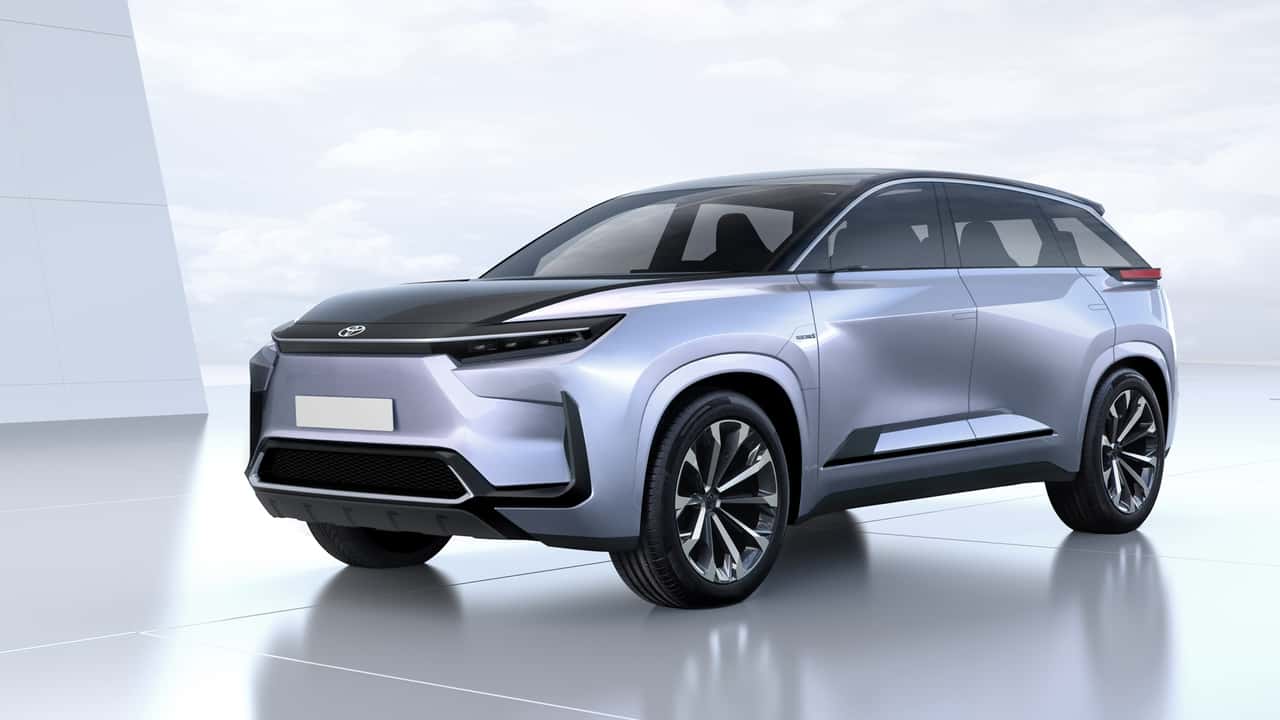- Toyota plans to delay the start of production of its first U.S.-made electric vehicle, Nikkei reported.
- The automaker had planned to start building a large electric SUV in Kentucky in 2025.
- Now that timeline has reportedly slipped to 2026.
You may have to wait a few extra months for your battery-powered Toyota. The company is delaying the start of North American electric-vehicle production by several months, Nikkei reported on Thursday.
The world’s largest automaker by sales initially said it would start building EVs in North America in 2025 at a plant in Kentucky. Now it plans to push that timeline to the first half of 2026, the outlet reports. The new timeline is partially due to changes to the model’s design, Nikkei said.
Toyota did not return a request for comment. Company spokesperson Scott Vazin confirmed the change on Thursday to Reuters, saying, “We’ve always said it would be late 2025 and it could creep into 2026 and it does look like it’s going to creep into 2026.”

Toyota’s Kentucky assembly plant.
The first vehicle planned for the Kentucky plant is a three-row electric SUV—a body style that Americans increasingly crave and which barely exists in EV form. In February, Toyota said it would invest $1.3 billion into the plant to establish assembly lines for vehicles and battery packs. The battery cells themselves are set to come from a new Toyota plant coming online in 2025 in North Carolina.
Only EVs built in North America are eligible for the federal government’s $7,500 purchase incentive for plug-in vehicles, which gives global automakers a big reason to establish EV production domestically. (Leased EVs qualify no matter what, but ones purchased outright need to satisfy the final assembly requirement.) The Inflation Reduction Act of 2022 established tax credits that incentivize domestic battery production, too.
While Toyota’s move could be all about vehicle design (or supply disruptions, as Reuters previously reported) one can’t ignore the backdrop here. The momentum behind EV sales growth has slowed, particularly in some parts of Europe and the U.S. Sales of electric cars are still growing, just not as ferociously as they were in years past. That trend has pushed automakers including General Motors, Ford, Volvo and Mercedes-Benz to rethink their EV strategies and pull back their more aggressive sales targets.

The Toyota bZ4X is one of two electric vehicles sold by the automaker in the U.S., and the only one sold under the Toyota brand.
Toyota has been reprioritizing too. It recently cut its EV production target for 2026. And, according to Nikkei’s reporting on Thursday, it has ditched a plan to make Lexus EVs in North America by the end of this decade.
Toyota had already been approaching the electric future with more caution than some global rivals, insisting that hybrids are the more practical approach for reducing carbon emissions for the near term. While Toyota only sells two EVs in the U.S. right now, it sells nearly 30 hybrids and sales of those vehicles have been on a tear as of late.
Still, Toyota still has big plans for fully electric cars, too. A Toyota spokesman told Reuters on Thursday that Toyota plans to launch between five and seven EV models in the U.S. in the next two years.
Contact the author: tim.levin@insideevs.com
Toyota Reportedly Delays Production Of Its First U.S.-Made EV
In a surprising turn of events, Toyota has reportedly delayed the production of its first U.S.-made electric vehicle (EV). The announcement comes amidst a rapidly growing demand for electric vehicles as the global automotive industry shifts towards more sustainable modes of transportation.
Toyota had initially planned to start production of its highly anticipated electric SUV at its joint venture plant with Mazda in Huntsville, Alabama. However, sources close to the company have revealed that the production of the EV has been postponed due to various unforeseen challenges in the supply chain.
While Toyota has not officially commented on the delay, industry analysts speculate that the shortage of semiconductors and other crucial components may be the primary reason for the setback. The ongoing global chip shortage has already disrupted production for several major automakers, causing delays and impacting their bottom lines.
The delay in Toyota’s U.S.-made EV production is seen as a setback for the company’s ambitious plans to expand its electric vehicle lineup and compete with industry leaders such as Tesla and Ford. As the demand for electric vehicles continues to rise, automakers are under pressure to accelerate their electrification efforts and bring more EV models to market.
Despite the setback, Toyota remains committed to its goal of achieving carbon neutrality by 2050 and has pledged to invest billions of dollars in research and development for electric vehicles. The company has already announced plans to launch a series of new electric models in the coming years, including hybrid and plug-in hybrid vehicles.
In the meantime, consumers eagerly awaiting Toyota’s first U.S.-made EV will have to wait a little longer. The company has not provided a new timeline for the production of the electric SUV, but industry experts remain optimistic that Toyota will overcome the challenges and deliver a competitive electric vehicle that meets the needs of today’s environmentally conscious consumers.
As the automotive industry continues to evolve, Toyota’s delay in producing its first U.S.-made EV serves as a reminder of the complexities and challenges inherent in transitioning to a more sustainable transportation system. However, with its long history of innovation and commitment to quality, Toyota is well-positioned to overcome these hurdles and emerge as a key player in the electric vehicle market.
In conclusion, while the delay in production may disappoint some consumers, it is a testament to Toyota’s dedication to delivering high-quality, reliable electric vehicles that meet the needs of today’s environmentally conscious consumers. Toyota’s first U.S.-made EV may be delayed, but it is clear that the company is fully committed to electrifying its vehicle lineup and contributing to a more sustainable future for all.

